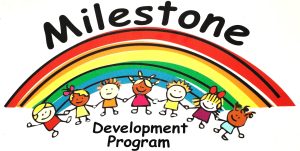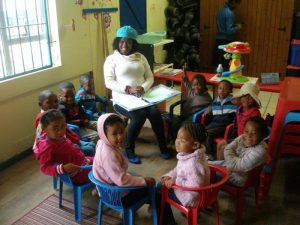
The Orphans and Vulnerable children (OVC’s) in Bethesda’s care is roughly 40% of our patient-base and we have currently ±160 children in our care/programs in the 3 Main Divisions of the organization.
The program is coordinated by a Remedial Teacher and implemented in all 3 MAIN divisions of the organization. One of the main Orphans & Vulnerable children projects is the Spur Wikkelwurms Development Program.
** Funded by Kindermissionswerk; Geronimo- and Timber Wolf Spurs
The Need:
The program started in January 2009 as a result of evaluations done by the Occupational Therapist. The Occupational Therapist evaluated all the Orphans & Vulnerable Children in Bethesda’s patient-base (Integrated Health and Wellness program, Intermediate Care Facility and Child and Youth Care Centre) and it was found that more than 50% of these children had developmental delays due to various reasons such as illness/disease/neglect/lack of stimulation/poor socio-economic circumstances/parental illness/death etc. The biggest problem as a result of the developmental delays was that these children were not school-ready at the age of 6; and thus, struggled to adapt academically and to progress once they go to school.
The Intervention:
The Occupational Therapist began a stimulation program (Early Stimulation and -Intervention) aimed at School Readiness with 5 children aged 4-6 years in January 2009; as the program grew the need for stimulation in the 2-4 yr old group also became apparent and a second group was started for these children. (The main focus was and still is on children infected/affected by HIV/AIDS/TB.) By the end of 2009 there were already 10 children in the 4–6-year-old group and also 10 children in the smaller group.
At present the program accommodate 20 children aged 18 months to 6 years. Orphans & Vulnerable Children from the 3 MAIN divisions of the organization are included in the program: the children that are medically stable in the Intermediate Care Facility + appropriate children from the Child-and Youth Care Centre + evaluated children from Integrated Health and Wellness.
Logistically lots of work was done: 5 Play-/Classrooms, 7 Ablution facilities and an outside Play area was renovated with the help of friends and funders. Equipment, Toys and Personal Hygiene items were acquired in a similar manner. Arrangements were made to transport the Integrated Health and Wellness children to and from the program with a Bethesda vehicle; and a driver was arranged for the extra hours. Furthermore, the Bethesda kitchen was asked to provide a snack, a fruit and a drink daily for each child. Suppliers of other necessities were secured.
The Program is currently presented as follows:
- Mondays to Thursdays the children come to Bethesda for 4.5 hours of Stimulation activities;
- Age group 18 months-4 years does Basic Component Stimulation activities;
- Age group 4-6 years does School Readiness- and Perceptual activities. (Developed by the Occupational Therapist and Remedial Teacher).
- The children are divided into 4 groups according to their Developmental age and appropriate Stimulation- and Development Activities is presented to them in these groups.
- Emotional Support Groups are held once a month by the Social Worker
- Occupational Therapy and Physiotherapy is done when available, and upon referral.
- Also included in the program are Basic Life Skills, Social development/Cohesion activities, Nutritional support, Parental Guidance through our Parent meetings and Holistic support of the children by the multi-disciplinary team of Bethesda.
- The multi-disciplinary team consists of: Primary Health Care Professional nurse (Integrated Health and Wellness); Occupational Therapist; Social worker; Remedial teacher; Pediatric Auxiliary workers, and UCT students.
- Our main focus remains on children infected or affected by HIV/AIDS/TB.
It must be clearly stated that this program is a STIMULATION PROGRAM and not a daycare/creche; the children attending the program have been admitted to the program with specific developmental goals in mind and to ensure that they develop and heal holistically whilst they attend the program. The children usually exit the program when they are ready to go to Grade R in the mainstream educational system or when their developmental needs have been met.
Activities Details of the Program include: (1) Development Stimulation Program with Basic Component Stimulation (Gross- and Fine Motor; Communication; ADL) for the 18 months-4 year olds and School Readiness- and Perceptual Activities for the 4-6yr olds; (2)Nutritional support in the form of 1 meal and 1 snack per day; (3) Continued Life Skills development; (4) Play activities including “Fantasy”-Play and Group activities; (5) Regular Outings to different Child-friendly locations; (6) Parent/Caregiver Meetings and -Education sessions; (7) Activities of Daily Living/Independent Living including Self-Care and Personal hygiene; (8) Emotional Support; (9) Monthly Birthday Parties for children that celebrated their birthday in that month; (10) Multi-disciplinary team interventions.
Staff was appointed and expanded as the program grew; currently we have 1 Divisional Head (Remedial teacher); 3 Auxiliary workers that help with the 4 groups and activities. The program is supported by the Kitchen-, Cleaning-, Maintenance-, Finance- and Supply chain divisions of Bethesda.
The Achievements:
In a study done during 2013, the team reviewed all the children that were discharged (since 2009 until 2012) from the program into mainstream education: Of these children more than 70% displayed academic result above the 50% achievement rate in their school grades!!!!
Qualitative Positive results for the children are regularly noted in the weekly and quarterly reports on all the children and include aspects such as:
- Improved developmental- and perceptual Function;
- Improved behavior in terms of Life Skills/Communication/Personal Hygiene/Group interaction etc.
- Improved Holistic Health and functional performance in the Program (it was found that with improved Nutrition, the children do much better in activities and program requirements);
- Improved Intra-personal behavior including more Self-confidence/Assertiveness/Self-worth and Self-respect by most of the children that resulted in better relationships and overall performance by the children.
Click below to view Wikkelwurms Newsletter in PDF format:
Wikkelwurms Newsletters 2017:
Wikkelwurms Newsletters 2016:
Wikkelwurms Newsletters 2015:
Wikkelwurms Newsletters 2014:
